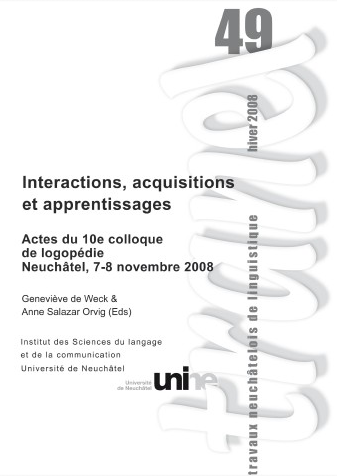Développement des interactions sociales et théorie de l'esprit : fonctionnement et dysfonctionnements
DOI :
https://doi.org/10.26034/tranel.2008.2757Résumé
This paper draws a critical review of studies about theory of mind (ToM) development in typical and atypical (autistic) children, examining how researchers conceive the role that social interactions play in this process. The growing body of studies searching for neural correlates of ToM functioning and dysfunctioning has stressed the attention on maturational influences, and tend to neglect the dynamic contributions of social and communicative experiences to the process of its development. Early neurodevelopemental disorders such as autism affect not only the child intrinsic capacities to make sense of the environment, but also the environmental context iself, by altering the conditions of establishing and maintaining social interactions. The caregivers, usually presumed as social expert partners, are weaken in their communicative adjustment skills as well as their abilities to make sense of the child's behaviors. Two examples of developmental studies conducted in our research team will briefly illustrate the necessity of studying social cognition within its interactive contexts of usage in order to understand its functioning and dysfunctioning.Téléchargements
Publié-e
01-12-2008
Comment citer
Plumet, M.-H. (2008). Développement des interactions sociales et théorie de l’esprit : fonctionnement et dysfonctionnements. Travaux neuchâtelois De Linguistique, (49), 9–28. https://doi.org/10.26034/tranel.2008.2757
Numéro
Rubrique
Article thématique


